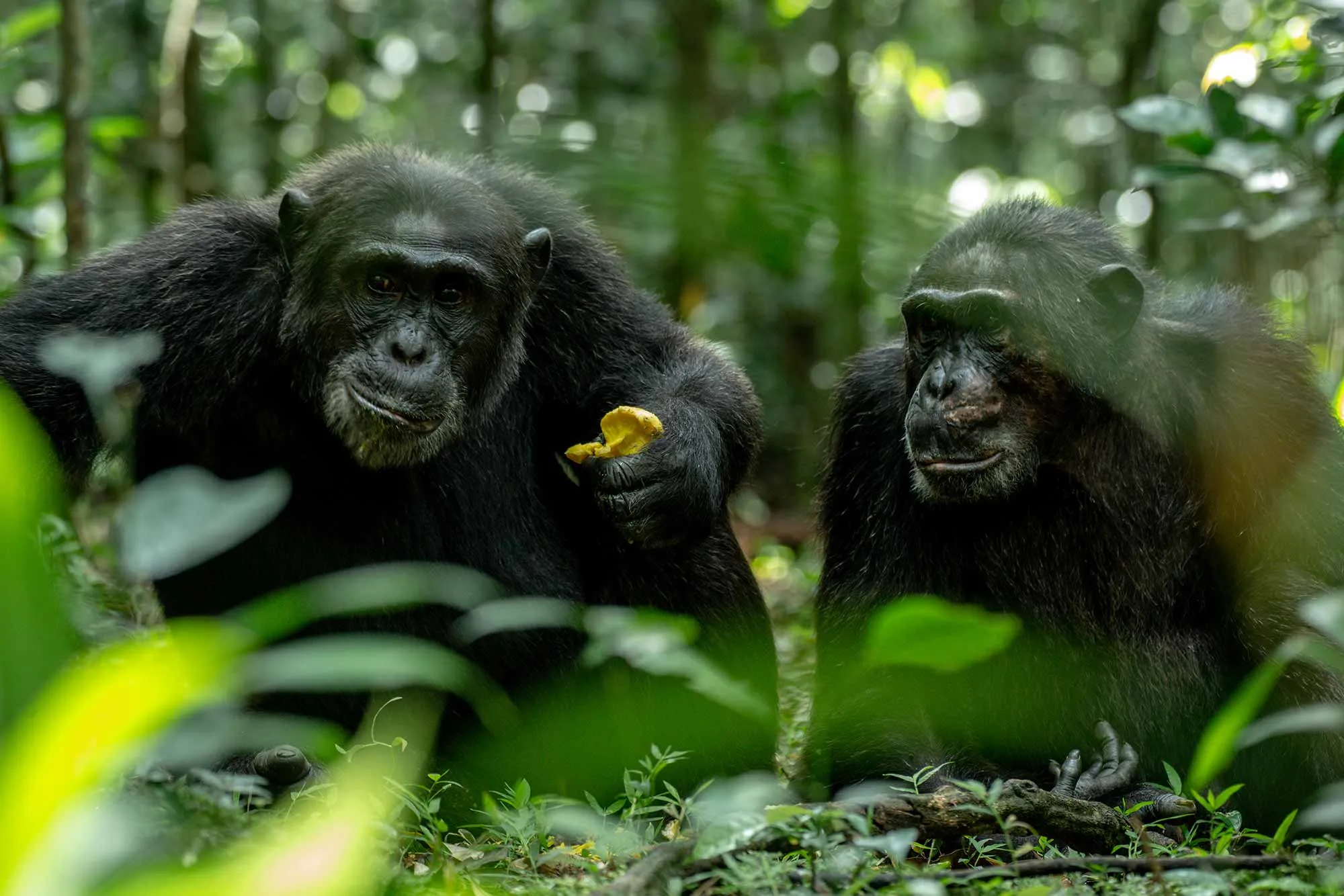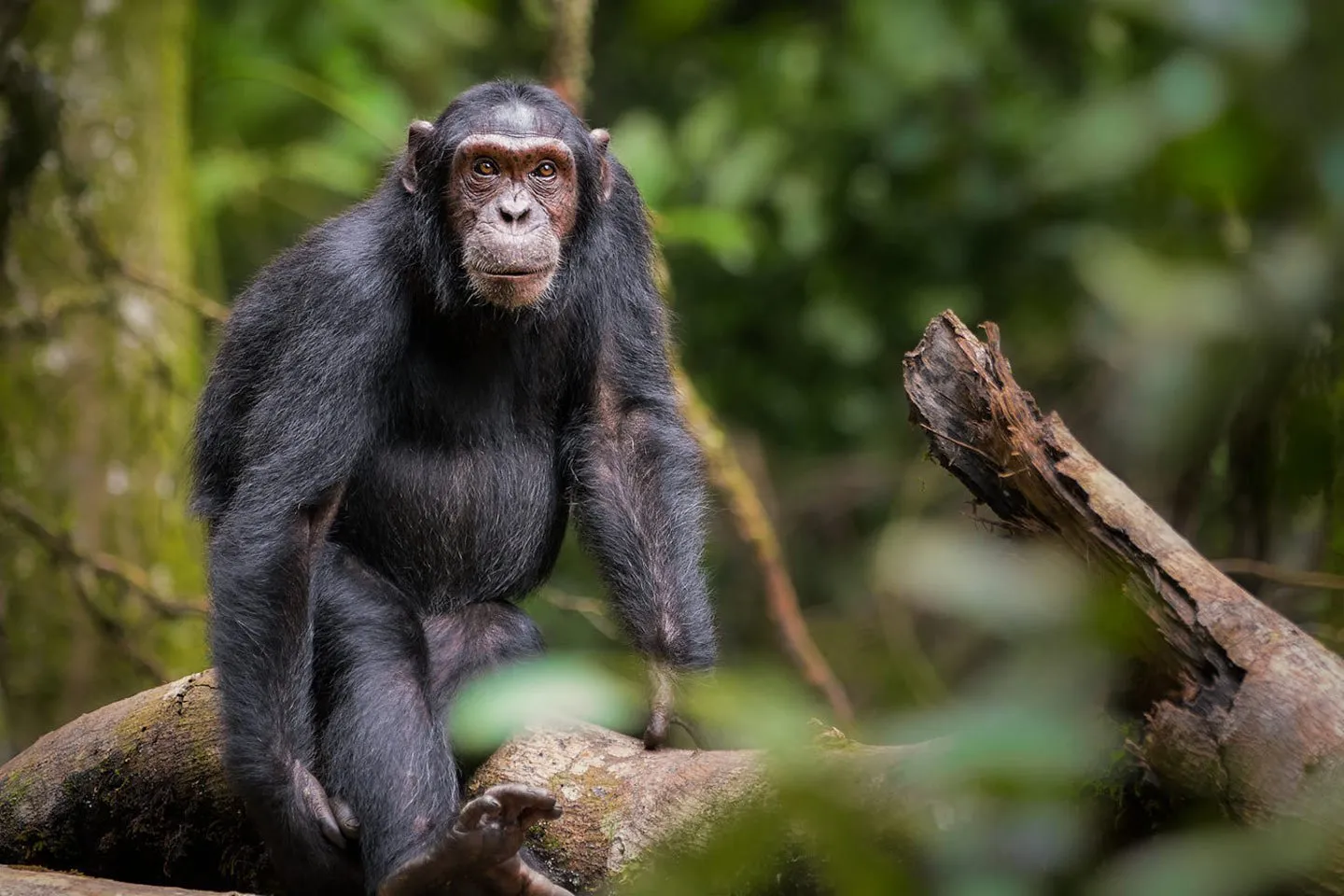Kibale Forest National Park: Uganda’s Primate Paradise
Kibale Forest National Park, located in the southwestern region of Uganda, is a premier destination renowned for its incredible primate population and lush tropical rainforest. Covering approximately 766 square kilometers, Kibale is celebrated for its diverse ecosystems, vibrant flora, and the unique opportunity it offers for chimpanzee tracking. As a prime example of Uganda’s rich natural heritage, Kibale Forest provides a wealth of adventure experiences and unforgettable encounters for nature enthusiasts and wildlife lovers.
A Sanctuary for Chimpanzees: Kibale Forest National Park’s Crown Jewel
Kibale Forest National Park is famously known as one of the best places in Africa to observe wild chimpanzees. The park is home to one of the largest populations of these great apes, with over 1,500 individuals residing within its boundaries. Chimpanzee tracking is the highlight of a visit to Kibale, offering an immersive experience into the lives of these intelligent and social animals. Accompanied by expert guides, visitors trek through the dense rainforest, following signs of chimpanzee activity and listening for their distinctive calls. The experience culminates in a thrilling encounter with a chimpanzee community, providing a unique glimpse into their behaviors, interactions, and social structures. This intimate experience not only showcases the chimps’ remarkable intelligence but also emphasizes the importance of conservation efforts to protect these endangered species.
Diverse Primate Species: Beyond Chimpanzees
While chimpanzee tracking is the main attraction, Kibale Forest boasts an impressive diversity of primate species. The park is home to 13 primate species, including the black-and-white colobus, red-tailed monkey, and L’Hoest’s monkey. These primates inhabit various forested environments within the park, from dense lowland forests to higher elevation bamboo groves. Guided nature walks offer visitors the chance to observe and learn about these fascinating creatures in their natural habitats. Each primate species has its own unique behaviors and adaptations, making the exploration of Kibale’s primate population a captivating and educational experience. Additionally, the park’s rich avifauna, with over 350 bird species, provides excellent opportunities for birdwatching and photography.
Immersive Nature Walks: Exploring Kibale’s Rainforest
Kibale Forest National Park is a paradise for nature enthusiasts, offering a range of guided walks that allow visitors to fully immerse themselves in the forest’s beauty and biodiversity. The park’s well-maintained trails traverse a variety of habitats, including lush rainforests, wetlands, and grasslands. During these walks, visitors can explore the park’s diverse flora, such as ancient mahogany trees, vibrant orchids, and giant ferns. The trails also lead to scenic viewpoints, where visitors can enjoy panoramic views of the surrounding landscape. Guided nature walks provide valuable insights into the forest’s ecology and the intricate relationships between its plant and animal species. For those seeking a more tranquil experience, the park offers serene walking trails that showcase the forest’s natural beauty and tranquility.
Cultural Encounters in Kibale Forest National Park: Engaging with Local Communities
Kibale Forest is not only a haven for wildlife but also a gateway to understanding the rich cultural heritage of the local communities. The park is surrounded by several traditional villages where visitors can engage with the local people and learn about their customs and way of life. Cultural tours offer insights into traditional practices, including local crafts, music, and dance. These encounters provide a deeper understanding of the relationship between the communities and the forest, highlighting the importance of community involvement in conservation efforts. By participating in cultural experiences, visitors contribute to the sustainable development of the region and support local initiatives aimed at preserving both cultural and natural heritage.
Additional Adventure Experiences: Exploring Uganda’s Iconic Parks
While Kibale Forest offers a wealth of unique experiences, Uganda is home to several other iconic national parks that provide a diverse range of adventure opportunities. Each park showcases its own distinctive landscapes and wildlife, making Uganda a premier destination for safari enthusiasts and nature lovers:
- Bwindi Impenetrable Forest National Park: Renowned for its mountain gorilla trekking experiences, Bwindi is a must-visit for those seeking intimate encounters with these critically endangered primates. The park’s dense forests and diverse wildlife also offer opportunities for guided nature walks and birdwatching.
- Queen Elizabeth National Park: Known for its stunning landscapes and abundant wildlife, Queen Elizabeth offers thrilling game drives and boat safaris on the Kazinga Channel. Visitors can witness a variety of species, including elephants, lions, and hippos, in their natural habitats.
- Murchison Falls National Park: Home to the dramatic Murchison Falls, where the Nile River cascades through a narrow gorge, this park provides exhilarating boat cruises and game drives. The falls and diverse wildlife, including giraffes, buffaloes, and leopards, make it a premier destination for adventure seekers.
- Rwanda’s Volcanoes National Park: Neighboring Kibale, Volcanoes National Park offers exceptional gorilla trekking experiences and opportunities to track golden monkeys. The park’s volcanic landscapes provide breathtaking views and add an extra dimension to the adventure.
- Tanzania’s Serengeti National Park: Famous for the Great Migration and vast savannahs, Serengeti is a top destination for game viewing. The park’s diverse wildlife and dramatic migration events offer unparalleled safari experiences and photographic opportunities.
- Kenya’s Masai Mara National Reserve: Renowned for its high density of big game and the annual migration of wildebeest and zebras, the Masai Mara provides excellent game viewing and cultural experiences with the Maasai people.
Conservation Efforts: Protecting Kibale’s Natural Heritage
Conservation is a key focus of Kibale Forest National Park, with ongoing efforts to protect its unique ecosystems and wildlife. The park’s management collaborates with local communities and conservation organizations to promote sustainable practices and support wildlife protection initiatives. Anti-poaching measures, habitat restoration projects, and community education programs are integral to preserving the park’s biodiversity and ensuring the long-term viability of its wildlife populations. Visitors to Kibale contribute to these efforts through their participation in park activities, such as chimpanzee tracking and guided walks. Their support helps fund conservation projects and fosters a greater appreciation for the park’s natural heritage.
Planning Your Visit: Essential Tips and Recommendations
When planning a visit to Kibale Forest National Park, it is essential to consider several practical aspects to ensure a rewarding experience. Booking chimpanzee tracking permits well in advance is crucial, as they are in high demand and limited in number. Visitors should also prepare for varying weather conditions, as the rainforest climate can be unpredictable. Wearing comfortable hiking boots, appropriate clothing, and carrying essential gear such as binoculars and a camera are advisable for a successful trek. Additionally, adhering to park regulations and guidelines ensures a respectful and responsible wildlife encounter.
Conclusion: A Journey into Kibale Forest National Park’s Wilderness
Kibale Forest National Park stands as a testament to Uganda’s rich natural heritage and offers a wealth of adventure experiences for travelers seeking to explore its primate paradise. From exhilarating chimpanzee tracking and immersive nature walks to cultural encounters and exploration of Uganda’s iconic national parks, Kibale provides a diverse and unforgettable safari experience. As part of the broader tapestry of Africa’s wildlife destinations, Kibale exemplifies the continent’s unparalleled beauty and the vital importance of conservation efforts in preserving its precious ecosystems for future generations.



